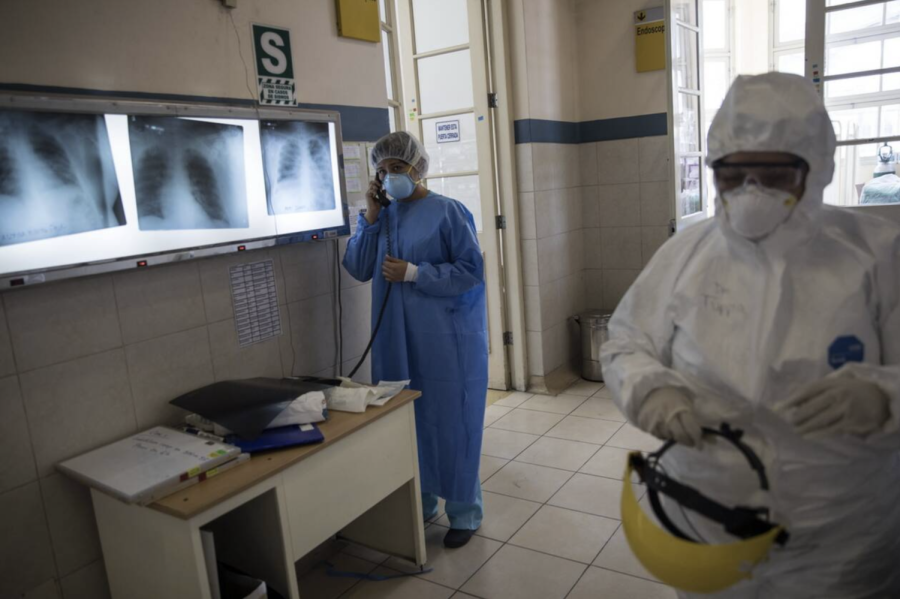AI transforms medicine
Changing healthcare industries, AI has potential to change lives for the better
AP
In the era of Coronavirus, the use of Artificial Intelligence in medicine is doing work in bettering the lives of patients and medical professionals
When people hear the words “Artificial Intelligence,” oftentimes they think of evil Terminator-esque machines destined to take over the world. Or, images of factories run by machines creating mass job replacement with computers taking over our daily lives dominate our minds.
From the very beginning we’ve been fed negative images and connotations of AI in our lives. We’ve been told that the innovation of AI will bring upon the fall of man. We’ve heard the same thing about the internet in its early days, and look where it took us.
In fact, AI has more applications that benefit humans that harm them. And when it comes to medicine, AI is doing actual work in saving people’s lives and bettering their life quality.
AI is transforming medicine, giving doctors and other healthcare professionals new insights into difficult medical conditions. In fact, some hospitals have found that during COVID when they deployed AI that mortality rates plummeted by 20%.
The future of medicine is one that uses AI to better the lives of patients as well as medical professionals. This article will look at four different ways artificial intelligence has improved human life.
Disease Diagnosis
The diagnosis of diseases is one of the most exciting uses of AI in medicine. Massive amounts of medical data can be collected and analyzed by AI, finding patterns that are invisible to humans. Medical professionals will then be able to make quicker and more accurate diagnoses.
AI can achieve this by reading X-rays, CT scans, and MRI scans, for example, and spot abnormalities it has been trained to find. This can be particularly helpful in detecting cancers and foreign tumors in their early stages, where early detection can greatly decrease the time and damage a disease can inflict on a person.
Drug Discovery
New drugs and treatments for a variety of diseases are also being developed using AI. The process of creating new medications can be costly and time-consuming.
By analyzing massive amounts of data and identifying potential drug candidates more quickly than conventional techniques, AI can assist in accelerating the drug discovery process. AI can also assist researchers in determining the most promising drug targets and predicting how a drug will interact with the human body, thereby minimizing the need for animal testing.
Personalized Medicine
Personalized medicine is another field where AI is having a significant influence. In order to create individualized treatment plans, AI can examine a patient’s medical records, including genetic data, medical history, and lifestyle factors.
Using a patient’s specific genetic profile, AI, for instance, can assist physicians in determining the optimal dosage of a given drug for a given patient. This strategy lowers the possibility of negative side effects while improving treatment results.
Virtual Assistants
Healthcare is gaining more and more traction with AI-powered virtual assistants like chatbots. These virtual assistants can offer advice on medication use, help patients manage their health, and provide answers to medical questions.







































